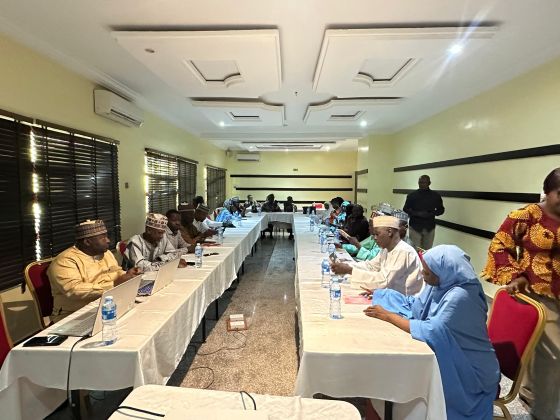The National Biosafety Management Agency (NBMA) has called on Nigerians, particularly farmers, to embrace the cultivation of Genetically Modified Organisms (GMOs), assuring the public that they are safe for both human and animal consumption.
The appeal was made by the Acting Director of Biosafety Enforcement and Operations, Hauwa Tahir Ahmad, during a workshop organised by the African Agricultural Technology Foundation (AATF) in collaboration with the Institute for Agricultural Research (IAR), Samaru Zaria. The event was aimed at equipping journalists with accurate and evidence-based information on GMOs.
Ahmad explained that adopting GMO crops has become imperative, given the challenges of food insecurity caused by climate change, pest infestation, and declining soil fertility. According to her, the innovation would help boost crop yields and ensure a sustainable food supply across the country.
She reaffirmed that all genetically modified crops approved in Nigeria have undergone rigorous scientific evaluation to guarantee their safety for consumption and the environment. Ahmad added that the three crops currently approved by the agency are Bt cotton, cowpea (beans), and TELA maize.
The NBMA official also dispelled widespread misinformation about GMOs, urging Nigerians to rely on verified and credible sources for information before forming opinions.
Also speaking, Professor Muhammad Faguji Ishiyaku, a Plant Breeding expert at the IAR, disclosed that the Federal Government had granted official approval for the institute’s innovations in modified crops. He cautioned against the spread of unfounded claims about GMOs, emphasizing the need for the public to verify information before dissemination.
Similarly, Dr. Muhammad Ahmad Yahaya, Director of Plant Science at IAR, explained that GMO crops developed in Nigeria were designed to reduce farmers’ dependence on hazardous pesticides. He said the innovation promotes safer, more productive, and environmentally friendly farming practices.
On her part, Irene Choge of the AATF noted that the foundation works across Sub-Saharan Africa to strengthen food security by improving farmers’ access to modern agricultural technologies. She urged journalists to remain factual, objective, and science-driven in their reporting on GMOs to help dispel myths and misinformation.


